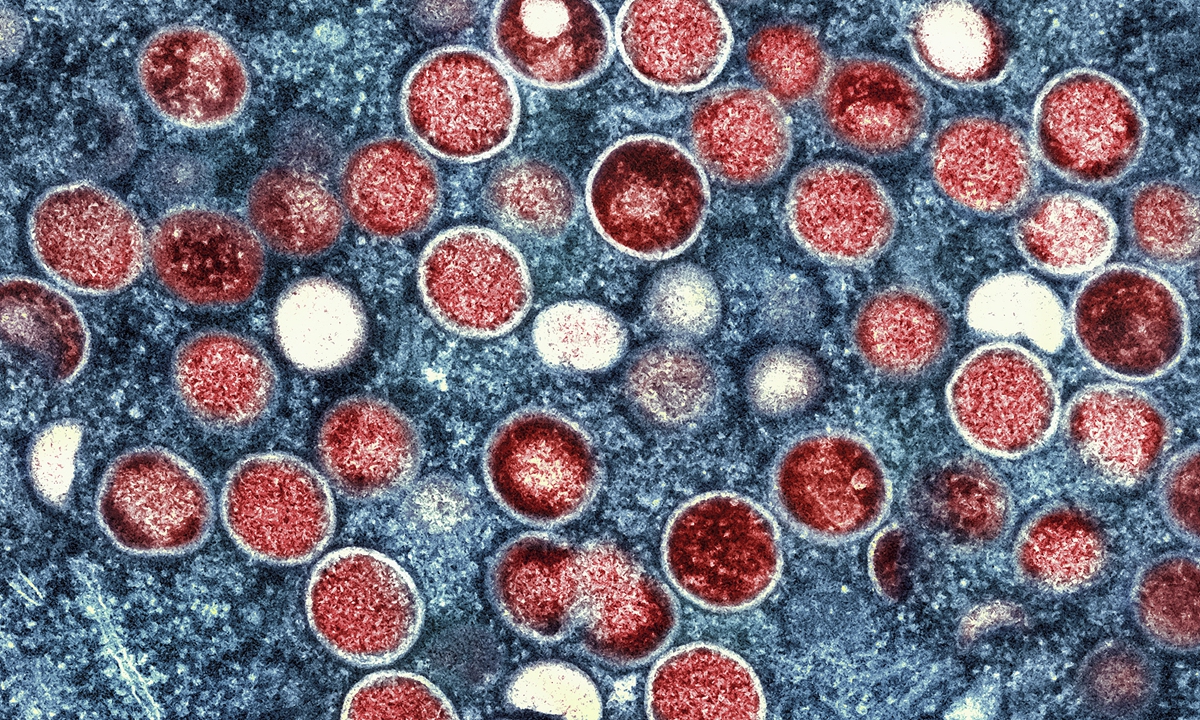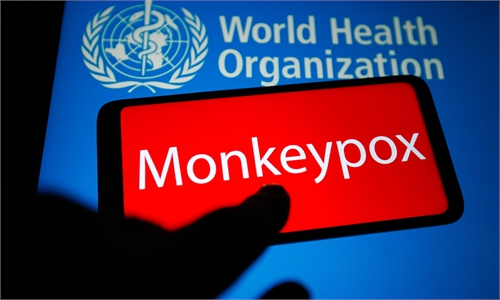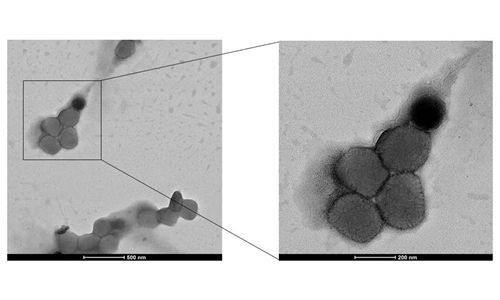China to classify monkeypox as Class B infectious disease to step up prevention, control

Photo: VCG
China's National Health Commission (NHC) announced on Friday that monkeypox will be classified as a Class B infectious disease and the corresponding prevention and control measures will be implemented starting from September 20, in a bid to carry out prevention and control work in a scientific and standardized way. Experts consider this move to be a correct step in carrying out the work.
In September 2022, China reported its first imported case of monkeypox, and the local monkeypox outbreaks began in June 2023. Currently, more than 20 provincial-level regions in China have reported monkeypox cases, causing the emergence of new local outbreaks and hidden transmission, according to the NHC.
Monkeypox is a zoonotic disease caused by the monkeypox virus, which was previously mainly detected in Central and West Africa. Since May 2022, outbreaks have occurred in more than 100 countries and regions globally. Meanwhile, the outbreaks in multiple countries have indicated that monkeypox can be transmitted from person to person, and has spread extensively beyond Africa, with the fatality rate approximately reaching 0.1 percent, the NHC said on Friday.
The authorities deal with monkeypox as a new outbreak infectious disease, constantly improve the prevention and control policies and measures, as well as strengthened education and intervention among key groups and standardized treatment. The country has achieved positive results in the prevention and control of monkeypox, said the health authorities.
The decision provides a clear legal basis for the management of monkeypox, allowing prevention and control departments and medical staff to carry out work in accordance with the law and making it more authoritative, Lu Hongzhou, head of the Third People's Hospital of Shenzhen, told the Global Times on Friday.
The local health authorities at or above the county level can be responsible for the prevention, control, and supervision of monkeypox locally. The authorities can designate medical institutions in the region that have the capabilities to provide treatment. Meanwhile, all levels of disease control departments and medical institutions must fulfill their responsibilities of reporting infectious diseases. Those who conceal, falsely report, or delay may face consequences such as administrative penalties, according to Lu.
Based on information related to the pathogenicity, transmission ability, and susceptibility of monkeypox, the infectious disease does not currently pose a significant threat to public health, said Lu.
Chinese health authorities issued a plan for the prevention and control of monkeypox in July this year, calling for multi-channel effective monitoring of medical institutes, key groups and international arrivals.
Lu said that the specific regulations will be determined by the health authorities of local governments after September 20, and it is worth noting that there are currently 27 other types of Class B infectious diseases with prevention and control measures, such as COVID-19, HIV and syphilis.
The public should enhance their protection awareness in daily life and work, and avoid contacting individuals with symptoms similar to monkeypox and reduce risky activities, Lu suggested.
Zhuang Shilihe, a medical expert based in Guangzhou, South China's Guangdong Province, echoed that view. Zhang told the Global Times on Friday that the classification is "timely and correct" after more than one year's medical observation on monkeypox. "We currently have a relatively good understanding of monkeypox's infectiousness, mortality rate, and susceptible population."
Based on data from July and August, we have found that about 500 cases were added each month in China; however, most of the cases were men who have sexual activities with other men. As a result, for ordinary residents, the other transmission channels are relatively low and the public has no need to panic, Zhuang said.
From August 1 to 31, 2023, there were 501 newly reported cases of monkeypox in the Chinese mainland. Among them, South China's Guangdong Province reported 95 cases, East China's Zhejiang Province reported 77 cases, and Beijing reported 54 cases, according to the latest report released by the Chinese Center for Disease Control and Prevention (China CDC) on September 8.
According to epidemiological investigations, 98.9 percent of the cases are male, and 92.5 percent of the monkeypox cases are confirmed to be men who have sexual activities with other men.
Meanwhile, five of the 501 cases were female, all of whom had heterosexual contact within 21 days before the disease onset. The risk of transmission through other contact methods is relatively low, said the report.
Most of the cases have clinical manifestations, such as fever, rash and lymphadenopathy. There are no severe or fatal cases so far, according to the report.
Global Times


